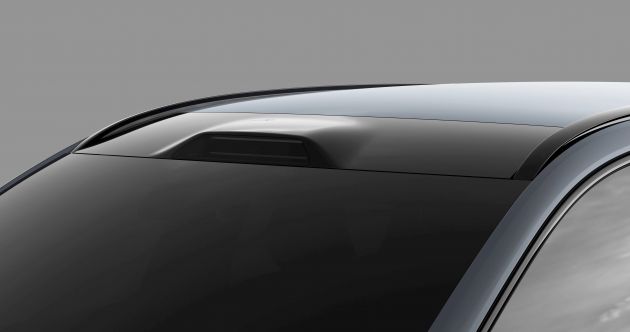Volvo Cars has announced that the next-generation XC90 will be getting lidar sensors as part of its standard equipment, Reuters reports. This will enable even more advanced safety and automated driving technologies to be available, since they rely on precise imaging of the vehicle’s surroundings.
In fact, the new driver assist systems are better designed to prevent injuries and fatalities, and it will only be more capable and reliable over time, said Volvo and lidar sensor supplier Luminar Technologies.
Volvo CEO Hakan Samuelsson said “by having this hardware as standard, we can continuously improve safety features over the air and introduce advanced autonomous drive systems.” Automakers have shied away from using lidar sensors due to the high cost of implementation – Luminar CEO Austin Russell said the price per unit is US$1,000.
Volvo’s CTO Henrik Green emphasised that cost is not the focus for the company. While the price of lidar tech will reduce over time as volumes grow, Volvo said the rollout will accelerate use of automated services that the company can charge for. Also, it gets to be the first to make lidar standard on a car, setting the stage for others to follow, like it did with the three-point seatbelt and side-impact airbags.
“Volvo Cars is, and always has been, a leader in safety. It will now define the next level of car safety. By having this hardware as standard, we can continuously improve safety features over the air and introduce advanced autonomous drive systems, reinforcing our leadership in safety,” Samuelsson added.
“This is kind of a watershed moment for the industry,” Russel said. “You don’t have an option package for airbags. You don’t have an option package for seatbelts. Why should you have an option package for life-saving technology?”
Earlier in March, Luminar said it struck a deal with Zenseact (Volvo’s software division) to offer a combination of Iris lidar hardware and Sentinel software system to power autonomous features for Volvo vehicles. At the time, Luminar also said that the system would be sold to other automakers.
The lidar-based system will provide automated driving, but only on highways, Luminar said. It uses a computing chipset from Nvidia, and can also be made to work with cameras and radar sensors that are already included in the cars. Luminar declined to discuss potential volumes, but the XC90 is the most popular Volvo model in the US, and it is Volvo’s third best-selling model globally.





The post Next-gen Volvo XC90 to get lidar sensor as standard appeared first on Paul Tan's Automotive News.



0 Comments